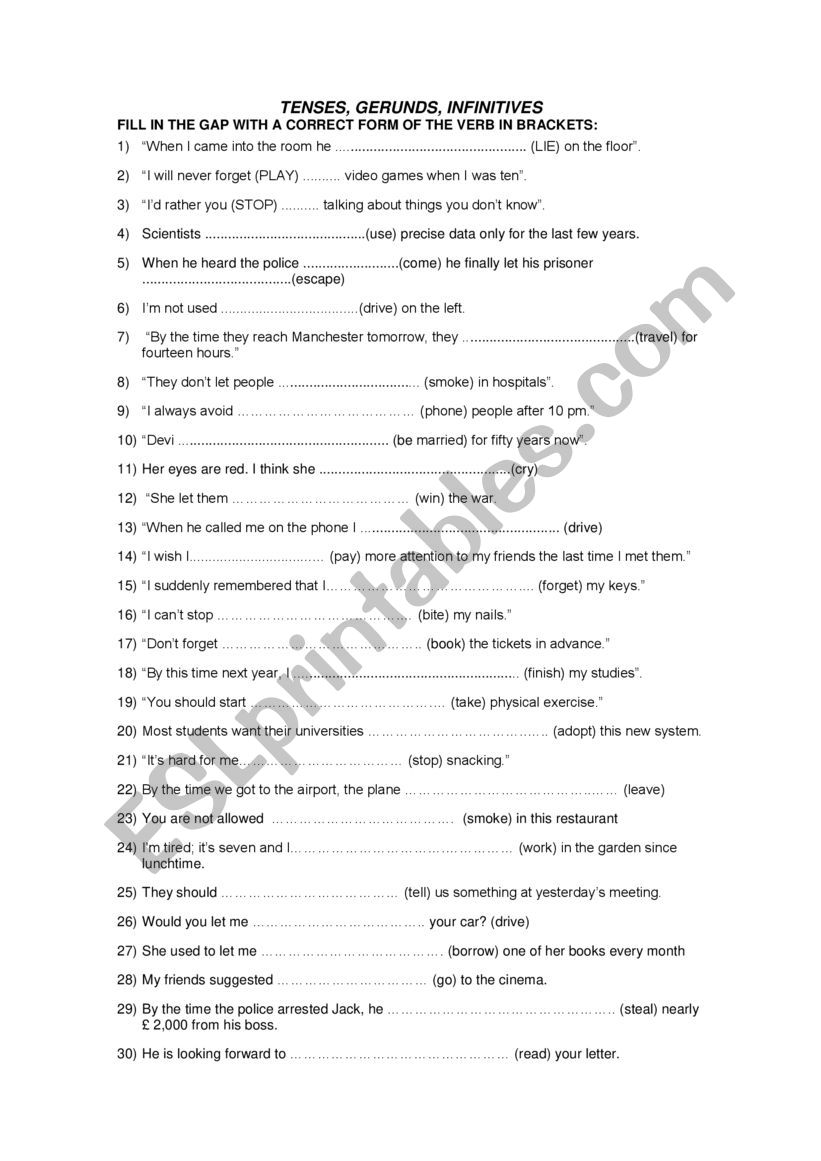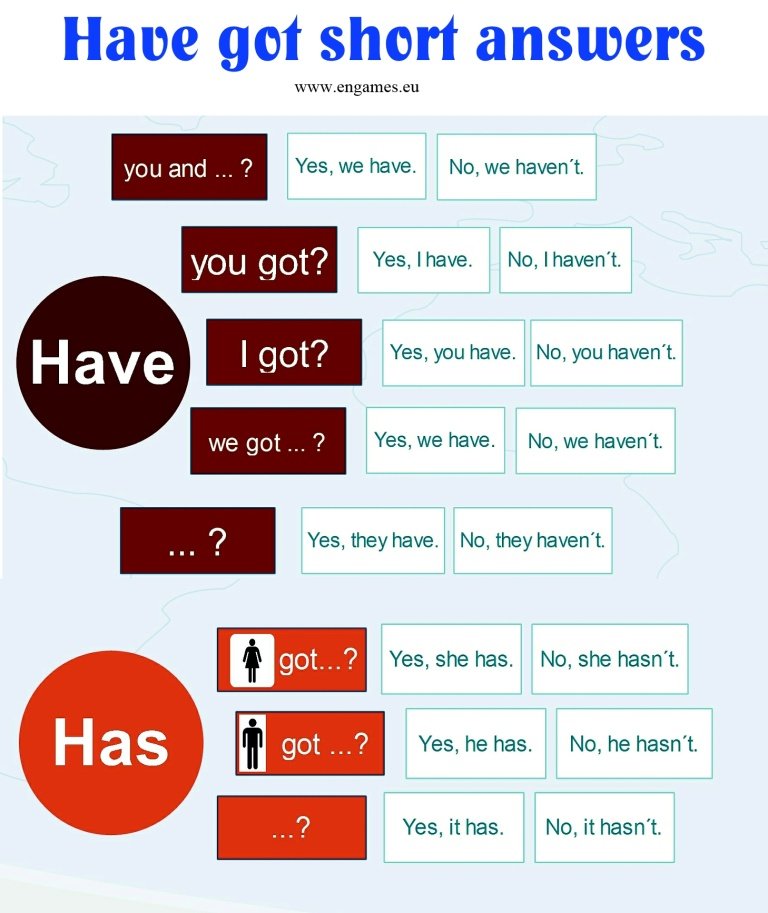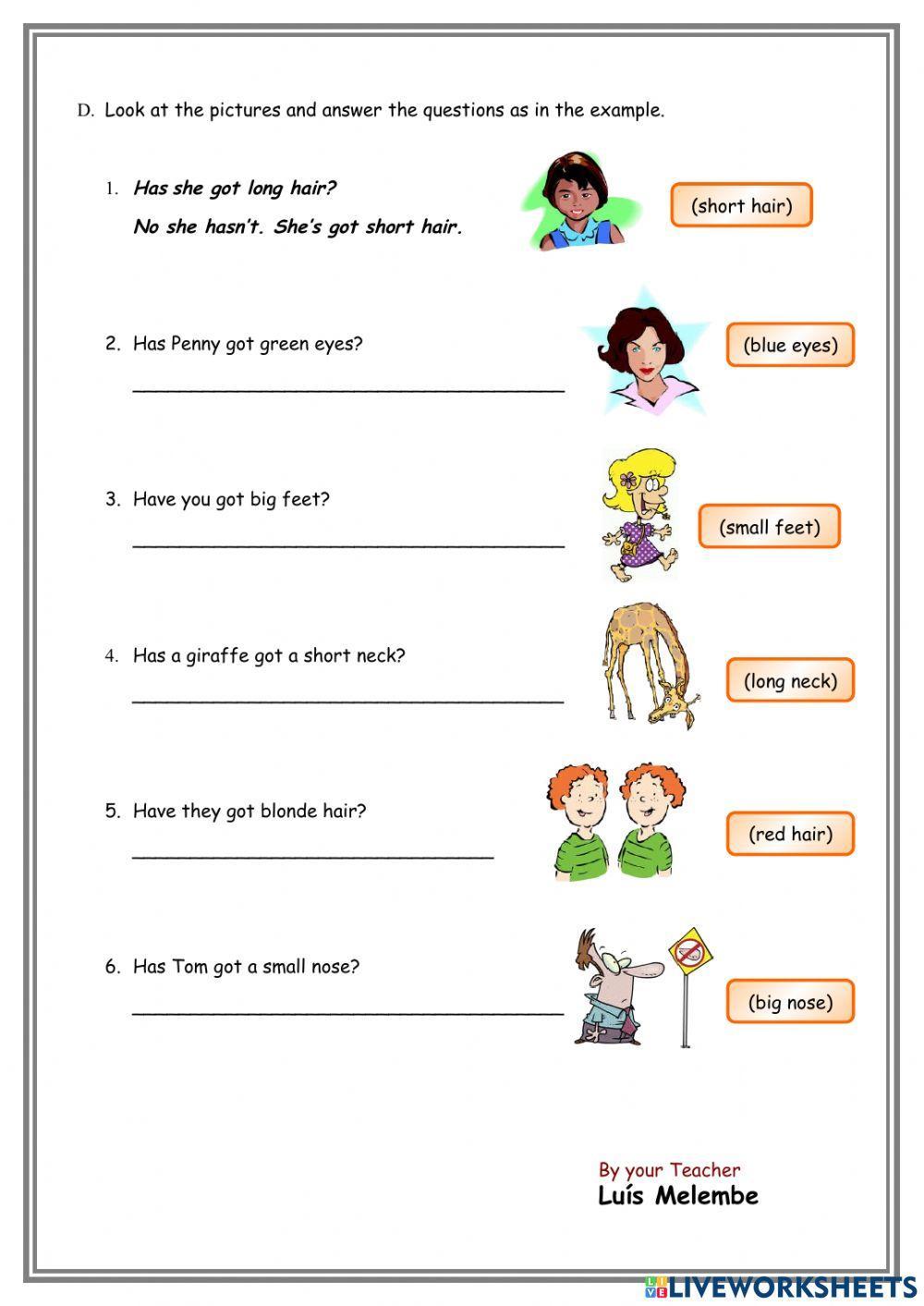Complete The Sentences With The Correct Form Of Have Got

Okej, spójrzmy na to zadanie z "have got" i jak poprawnie uzupełniać zdania. Chodzi o to, żeby użyć odpowiedniej formy tego wyrażenia, żeby zdanie miało sens gramatyczny i logiczny.
Zacznijmy od podstaw. "Have got" to po prostu inny sposób powiedzenia "have" (mieć). Używamy go, żeby wyrazić posiadanie, relacje, cechy charakteru, choroby, obowiązki – wszystko, co możemy "mieć".
Podstawowe Formy "Have Got"
Sprawa jest prosta, ale ważne jest, żeby pamiętać o paru rzeczach. "Have got" zmienia się w zależności od osoby, o której mówimy. Popatrzmy:
- I have got (Ja mam) – np. I have got a new bike.
- You have got (Ty masz) – np. You have got a beautiful smile.
- He has got (On ma) – np. He has got a very fast car.
- She has got (Ona ma) – np. She has got long hair.
- It has got (To ma) – np. The dog has got a fluffy tail.
- We have got (My mamy) – np. We have got a big house.
- You have got (Wy macie) – np. You have got a lot of friends.
- They have got (Oni/One mają) – np. They have got many books.
Zauważ, że dla he, she, it używamy "has got". Dla reszty osób używamy "have got". To jest bardzo ważne, żeby o tym pamiętać, kiedy uzupełniasz zdania.
Skróty "Have Got"
Często, szczególnie w mowie potocznej, używamy skrótów "have got". To ułatwia i przyspiesza mówienie.
- I've got (I have got)
- You've got (You have got)
- He's got (He has got)
- She's got (She has got)
- It's got (It has got)
- We've got (We have got)
- You've got (You have got)
- They've got (They have got)
Na przykład, zamiast mówić "I have got a headache," możesz powiedzieć "I've got a headache." Brzmi bardziej naturalnie. Pamiętaj tylko, żeby w pisemnych zadaniach, tam gdzie wymagana jest pełna forma, nie używać skrótów.
Pytania z "Have Got"
Żeby zadać pytanie z "have got", musimy trochę poprzestawiać słowa. "Have" lub "Has" idzie na początek zdania.
- Have I got...? (Czy ja mam...?) – np. Have I got enough money?
- Have you got...? (Czy ty masz...?) – np. Have you got a pen?
- Has he got...? (Czy on ma...?) – np. Has he got a sister?
- Has she got...? (Czy ona ma...?) – np. Has she got blue eyes?
- Has it got...? (Czy to ma...?) – np. Has it got a name?
- Have we got...? (Czy my mamy...?) – np. Have we got any milk?
- Have you got...? (Czy wy macie...?) – np. Have you got any questions?
- Have they got...? (Czy oni/one mają...?) – np. Have they got a car?
Zauważ, że w pytaniach używamy "have" lub "has" na początku, a potem podmiot (osobę lub rzecz) i "got".
Przeczenia z "Have Got"
Żeby zrobić przeczenie z "have got", dodajemy "not" po "have" lub "has".
- I have not got (Ja nie mam) – np. I have not got time. (Częściej: I haven't got time.)
- You have not got (Ty nie masz) – np. You have not got a ticket. (Częściej: You haven't got a ticket.)
- He has not got (On nie ma) – np. He has not got a job. (Częściej: He hasn't got a job.)
- She has not got (Ona nie ma) – np. She has not got any brothers. (Częściej: She hasn't got any brothers.)
- It has not got (To nie ma) – np. It has not got a battery. (Częściej: It hasn't got a battery.)
- We have not got (My nie mamy) – np. We have not got any apples. (Częściej: We haven't got any apples.)
- You have not got (Wy nie macie) – np. You have not got permission. (Częściej: You haven't got permission.)
- They have not got (Oni/One nie mają) – np. They have not got enough money. (Częściej: They haven't got enough money.)
Skrócone formy, czyli "haven't got" i "hasn't got", są znacznie częściej używane w mowie i piśmie.
Przykładowe Uzupełnianie Zdań
Teraz przejdźmy do przykładów, jak uzupełniać zdania. Zobaczmy kilka przykładów:
- ____ you ____ a car? (…ty…samochód?)
Tutaj pytamy, czy "ty" masz samochód. Używamy "have you got". Więc poprawna odpowiedź to: Have you got a car?
- She ____ a big dog. (Ona…dużego psa.)
Mówimy, że "ona" ma dużego psa. Dla "she" używamy "has got". Więc: She has got a big dog.
- I ____ any money. (Ja…żadnych pieniędzy.)
Chcemy powiedzieć, że "ja" nie mam żadnych pieniędzy. Używamy przeczenia. Więc: I haven't got any money. Albo, pełna forma, I have not got any money.
- They ____ a lot of homework. (Oni…dużo pracy domowej.)
Mówimy, że "oni" mają dużo pracy domowej. Używamy "have got". Więc: They have got a lot of homework.
- ____ he ____ a bicycle? (…on…rower?)
Pytamy, czy "on" ma rower. Używamy "has he got". Więc: Has he got a bicycle?
Kilka Dodatkowych Wskazówek
- Zawsze patrz na podmiot (osobę lub rzecz), o której mowa. To on decyduje, czy użyjesz "have" czy "has".
- Pamiętaj o skrótach, szczególnie w mowie. "I've got", "he's got" brzmią bardziej naturalnie.
- W pytaniach i przeczeniach pamiętaj o właściwej kolejności słów.
- "Have got" jest bardziej popularne w brytyjskim angielskim niż w amerykańskim. W amerykańskim angielskim częściej używa się po prostu "have". Na przykład, w brytyjskim angielskim powiesz "I've got a car", a w amerykańskim "I have a car".
Zastosowanie w praktyce
Spróbujmy jeszcze kilka przykładów:
-
My sister ____ long hair. (Moja siostra…długie włosy.)
- Kto ma długie włosy? Moja siostra. "Moja siostra" to jak "she". Więc: My sister has got long hair.
-
____ you ____ any brothers or sisters? (…ty…jakichś braci lub siostry?)
- Pytamy "ty". Więc: Have you got any brothers or sisters?
-
We ____ a new teacher this year. (My…nowego nauczyciela w tym roku.)
- Mówimy "my". Więc: We have got a new teacher this year.
-
The house ____ a big garden. (Dom…duży ogród.)
- Mówimy "dom". "Dom" to jak "it". Więc: The house has got a big garden.
-
____ they ____ enough time to finish the project? (…oni…dość czasu, żeby skończyć projekt?)
- Pytamy "oni". Więc: Have they got enough time to finish the project?
Uzupełnianie zdań z "have got" może wydawać się na początku trudne, ale z praktyką stanie się to bardzo łatwe. Kluczem jest zapamiętanie form "have got" i "has got" oraz zwracanie uwagi na to, o kim lub o czym mówimy w zdaniu. Powodzenia!








